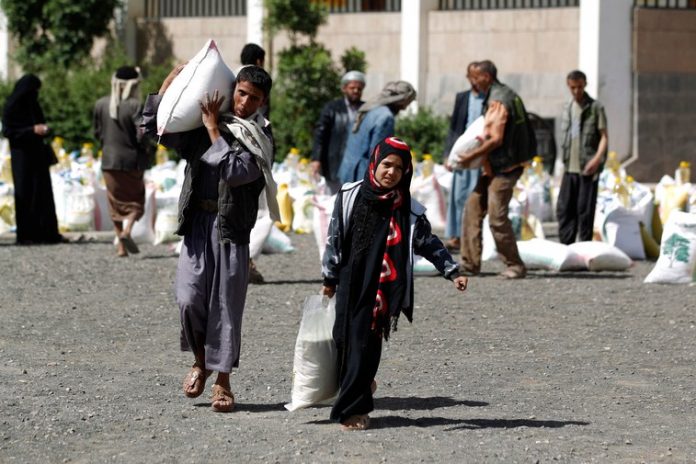Al-Thawra Net
Yemen has been called “the world’s next great refugee crisis,” and for good reason: The civilians that aren’t being hit by weaponry the U.S. has provided to Saudi Arabia are dying from famine or preventable diseases, such as cholera.
After two years of war, aid groups have issued repeated warnings about the growing humanitarian crisis in Yemen, calling it a “pressure cooker.” The World Health Organization approximates that there are 18.8 million people in need of humanitarian assistance in Yemen, with 10.3 million as having “acute” or immediate needs. More than 7 million of those people are facing food insecurity, with another 8 million are facing a shortage of clean water and sanitation.
The obvious violence against civilians by Saudi-led forces includes airstrikes on funerals, schools, homes, and other civilian targets. The Obama administration saw this as flagrantly unacceptable and in December 2016, put a hold on the U.S. selling any more weaponry to the Saudi military until they addressed these issues. The Trump administration has lifted that hold and continues to sell weaponry to the Saudi government for use against Yemenis.
On June 13, a Senate vote was held on Senator Chris Murphy (D-CT) and Rand Paul’s (R-KY) bipartisan resolution to halt the sale of $510 million of arms to the Saudis. It failed 47 — 53, but Murphy noted that it had 20 more votes in support than a similar resolution proposed last year.
Nonetheless, even if Saudi Arabia were to exercise increased military precision and accuracy from this moment forward, Yemen’s structural and economic situation would continue to collapse without huge – and unprecedented — amounts of humanitarian aid.
War damages and often collapses societal infrastructures, making access to basic needs like clean water, food, sanitation, and health care difficult. Yemen — the poorest of the Arab nations and home to more than 25 million people — was water-stressed and food insecure before the war. Today, about 90 percent of the food is imported into Yemen.
For Yemen, a Muslim-majority nation, the humanitarian needs have greatly escalated during the holy month of Ramadan, a time when Muslims may focus more on acts of good deeds and charity. Wealthier Arab nations have not properly facilitated aid to the poorest among them, whose infrastructures are destroyed and whose children are dying.
Yemen — and other conflict zones — require ongoing assistance and humanitarian aid not just during Ramadan, but year-round until the crisis is stabilized. Several reputable organizations, including Islamic Relief USA, Oxfam, Save the Children, and CARE are working to combat the violence and hunger.


















